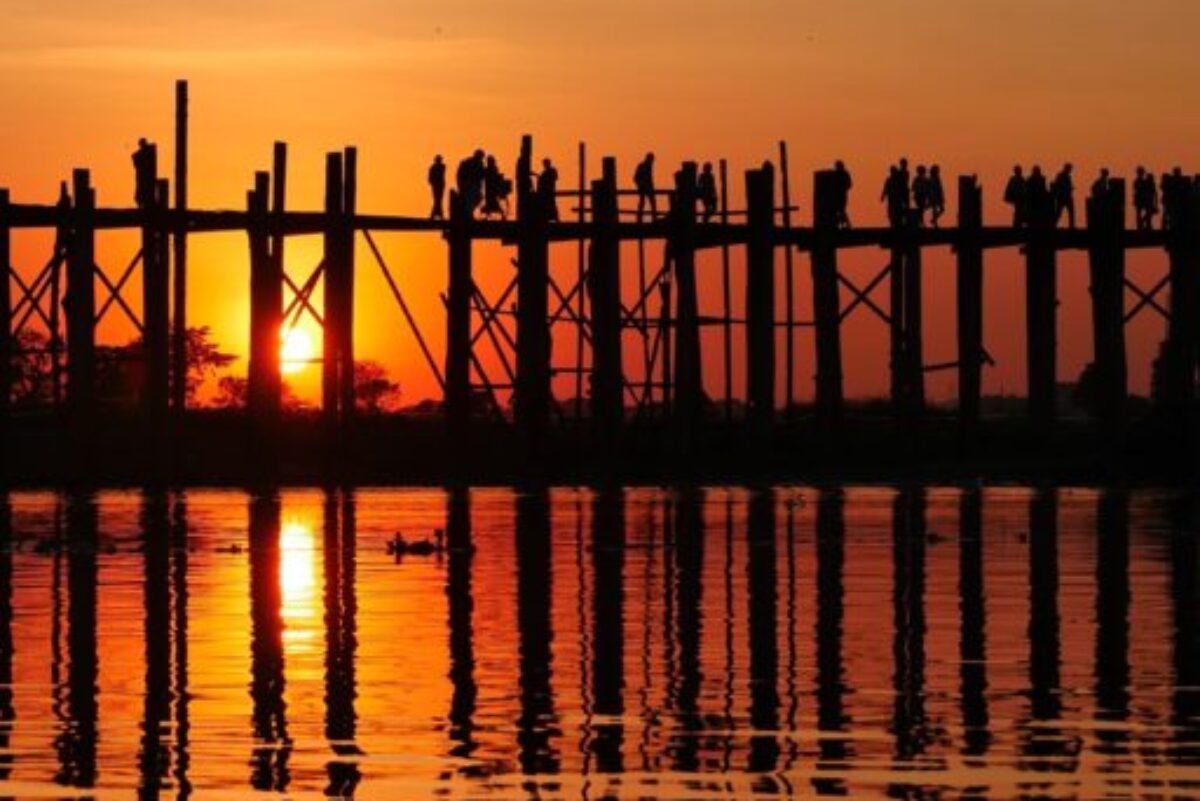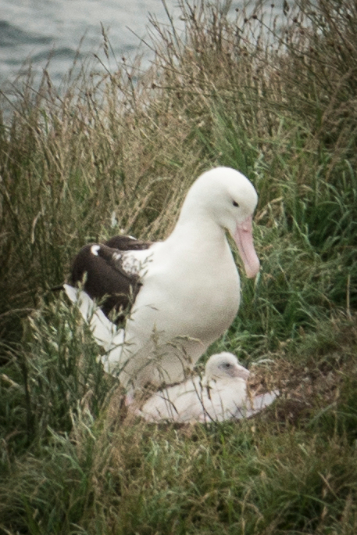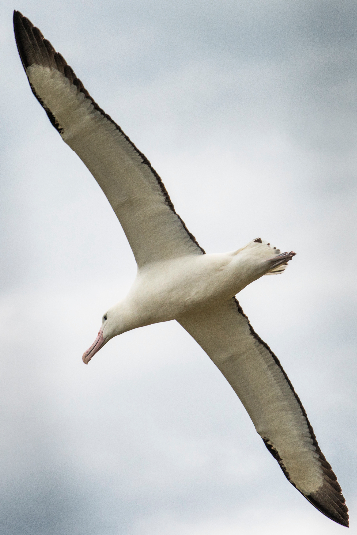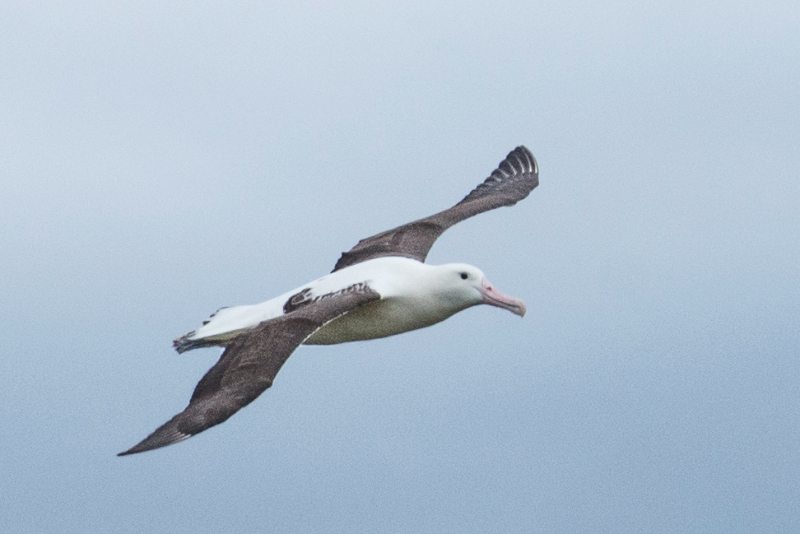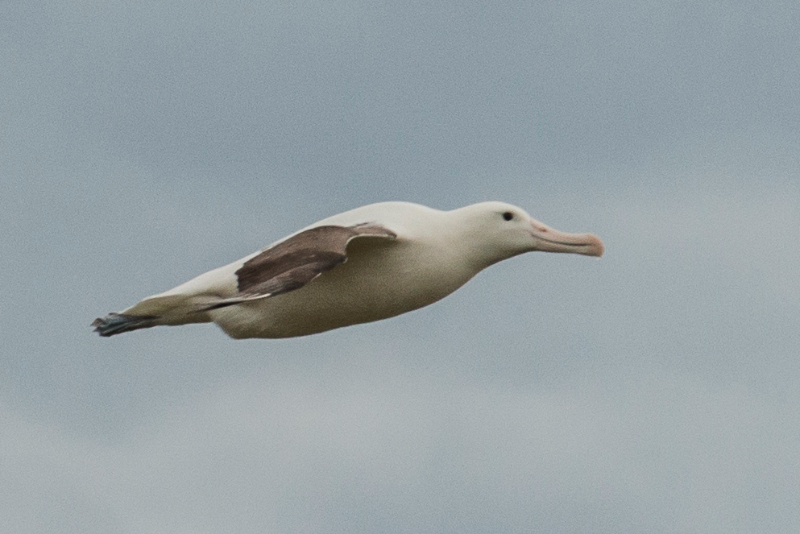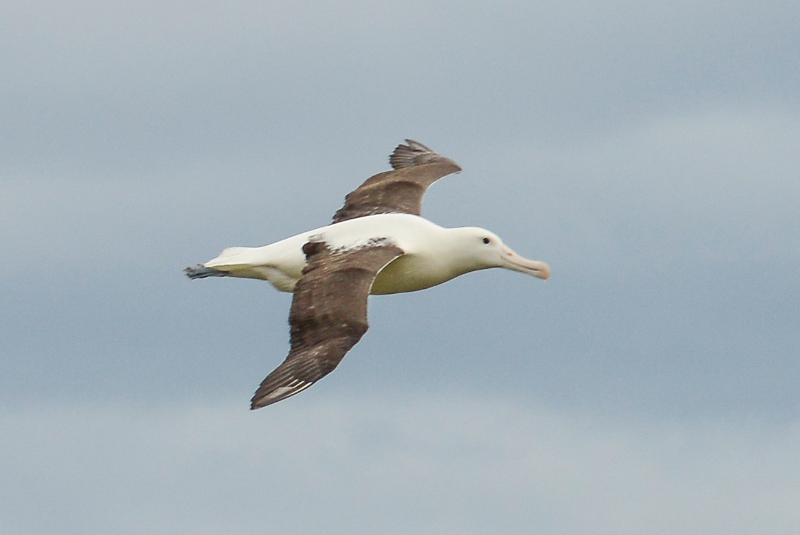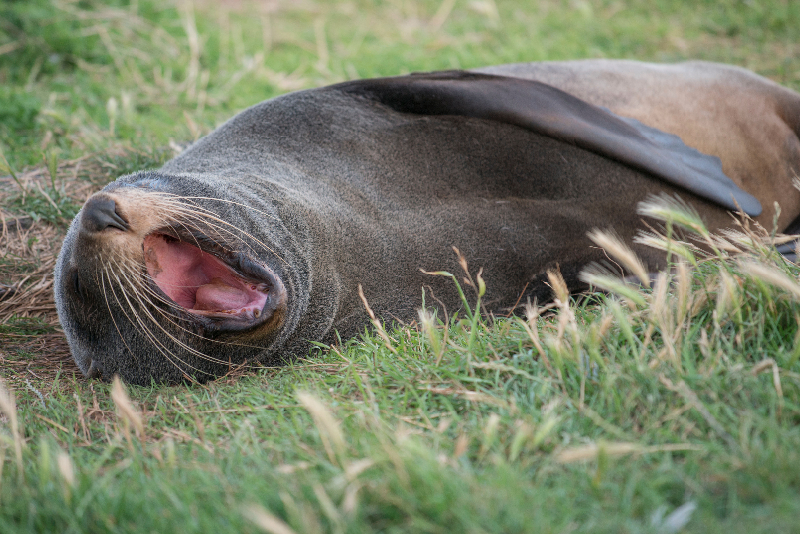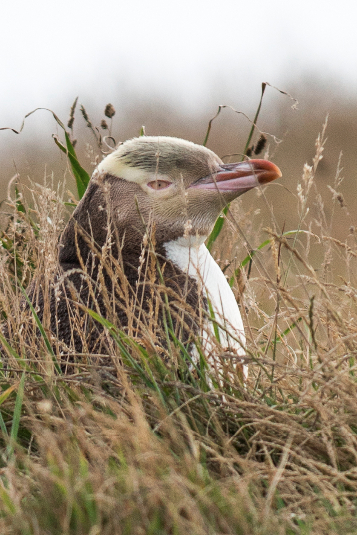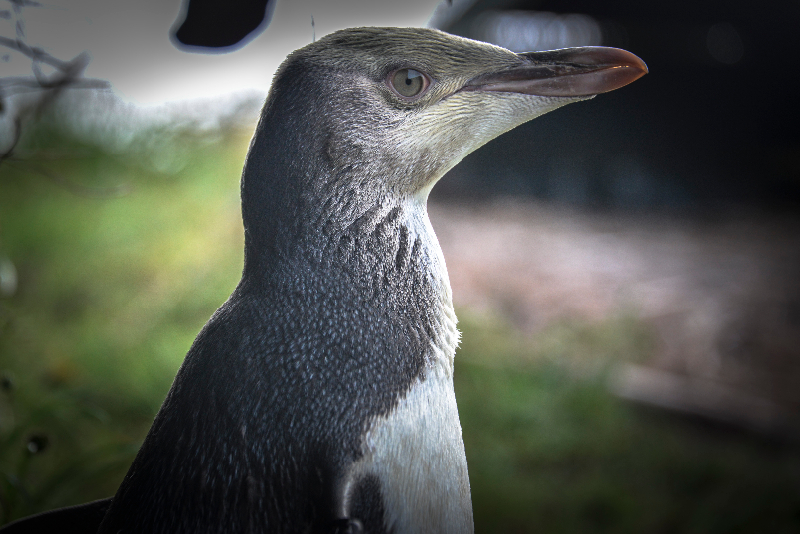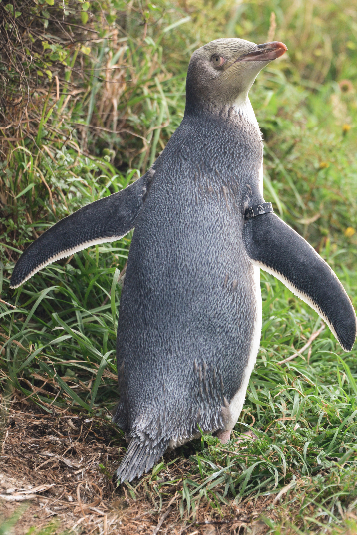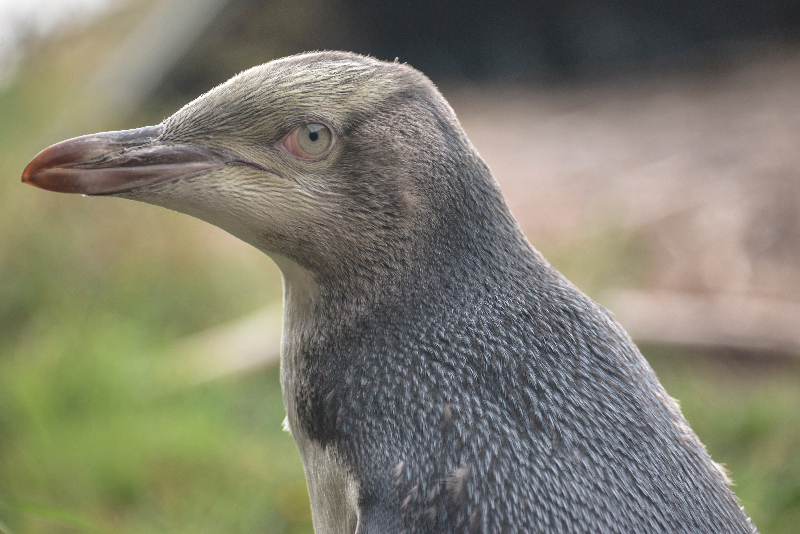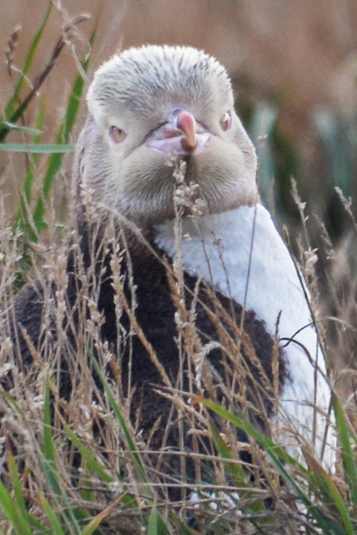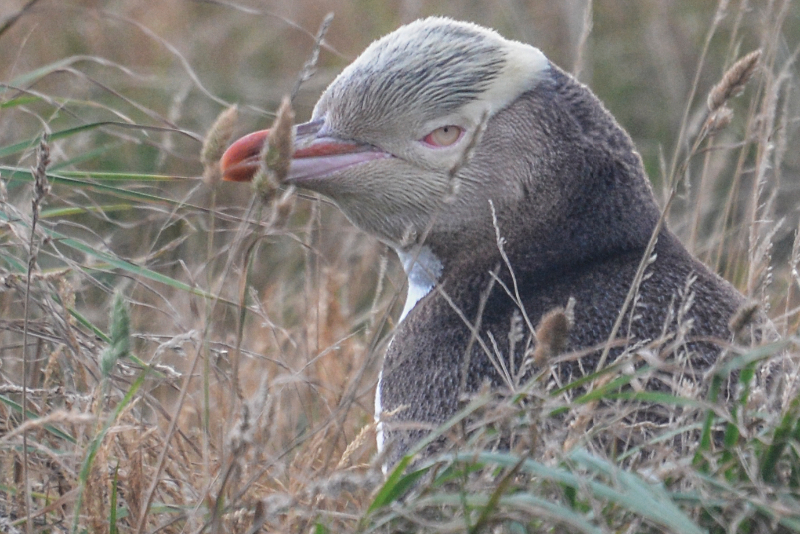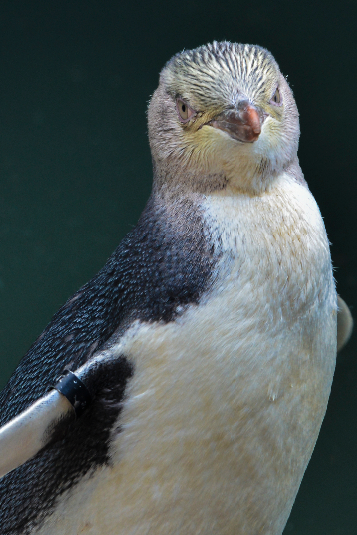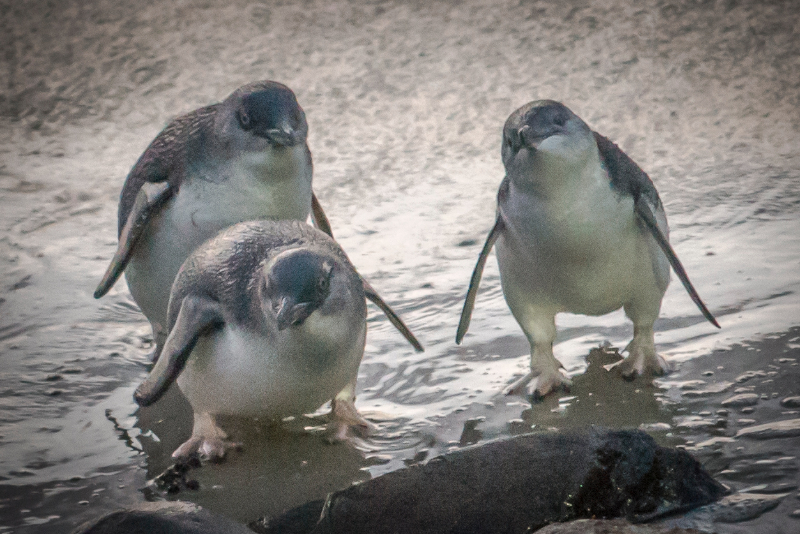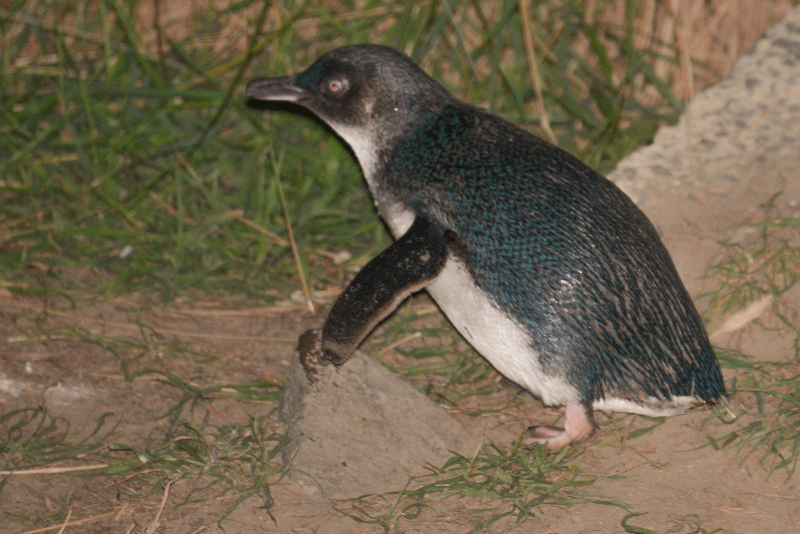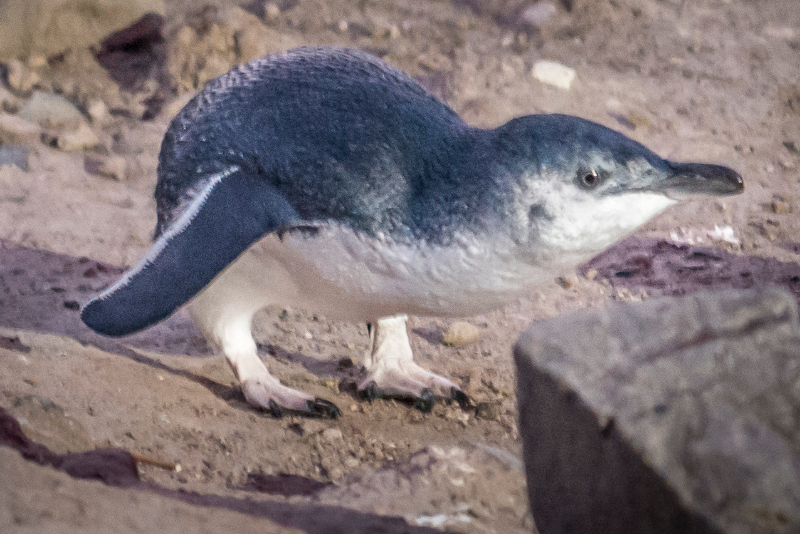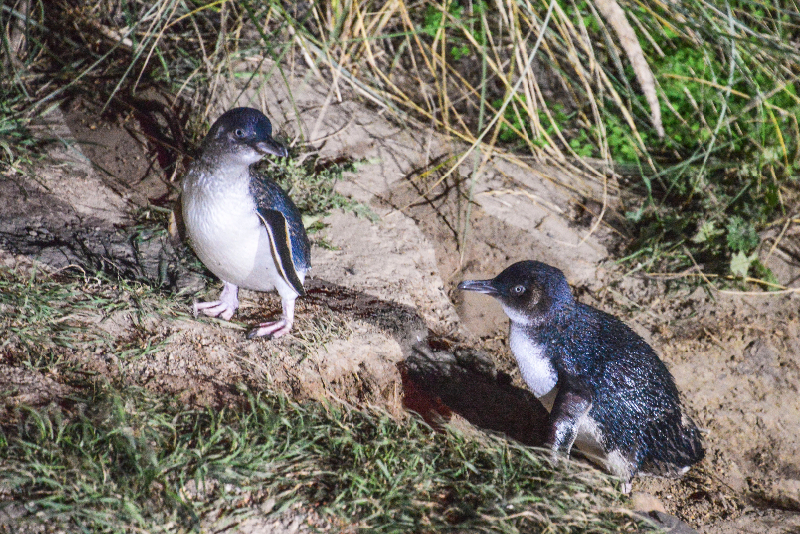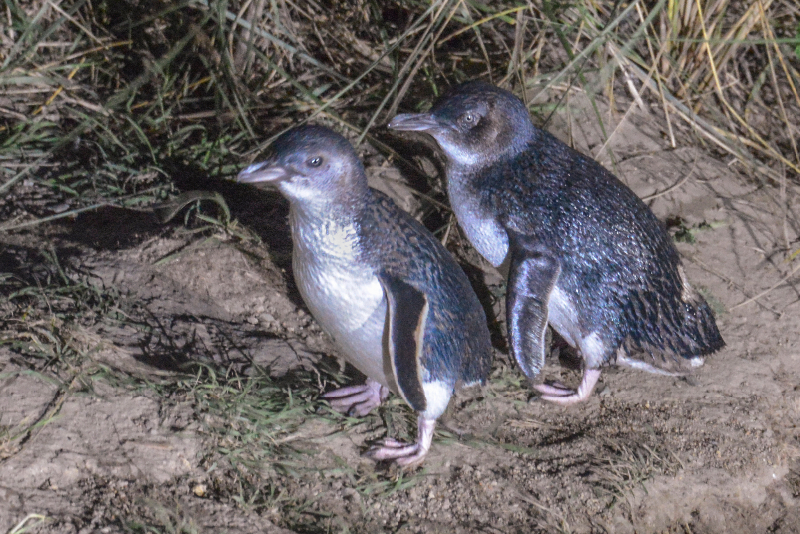To sight a soaring Albatross is unforgettable – a spectacle touched with a dignity and majesty no other bird can excel; seeing the endangered Yellow-Eyed Penguins; and the Little Blue Penguin in their natural habitat; gave us reason to visit the Otago Peninsula near Dunedin City.
The Royal Albatross Colony is the only mainland place in the world to view Northern Royal Albatross in their natural habitat. Held aloft on slim wings up to 3 metres (9’6″) across, the great Albatross is capable of swooping speeds of at least 115kph+. It’s pure ecstacy in the air, yet distinctly clumsy on the ground. When we were there, several albatross were nesting with their chicks who were only 3 weeks old.
Kororā, the Little Blue Penguin, the world’s smallest penguin (9-10 inches tall). The Royal Albatross Colony offers nightly tours to view the Blue Penguin at dusk when penguins come ashore and make their way to their nests where they feed their chicks or roost. The viewpoint was located at their natural habitat – scurrying up to their cliff-face burrows at Pilots Beach. After a day at sea, the penguins congregate in groups known as “rafts” not far offshore where they often can be heard vocalizing – usually short, loud squawks. They came in rafts of 5 or 7 at a time. The night we were there, approximately 50 blue penguins came ashore right in front of us!
New Zealand’s native Hoiho (yellow-eyed penguin) is the world’s rarest penguin. There are about 1,000 in New Zealand and another 2,000 near Antarctica. We toured the Penguin Place, a private conservation reserve, dedicated to helping the endangered Yellow Eyed Penguin survive. We experienced the penguins natural activity at close range (some were sitting in the grass, in their molting period) through a unique system of trenches and viewing hides. The Penguin Place provides habitat restoration, predator control, a research program and on-site rehabilitation care for sick, starving and injured penguins. They raise chicks that have been rejected by their parents, and even though they saved 60 chicks this year, only 15 will be alive by next year.
